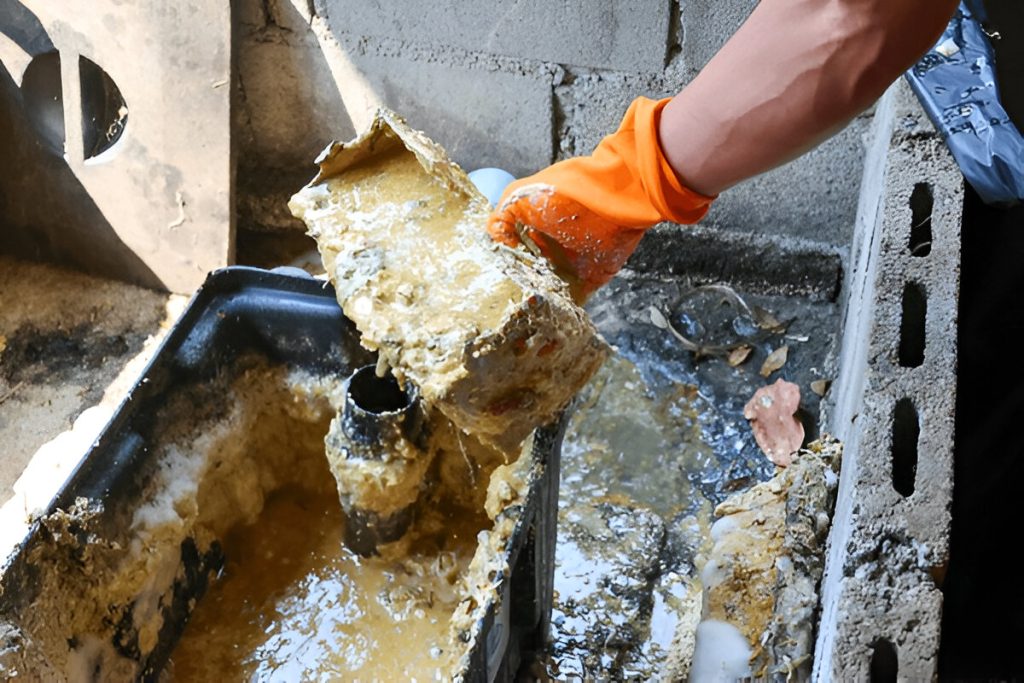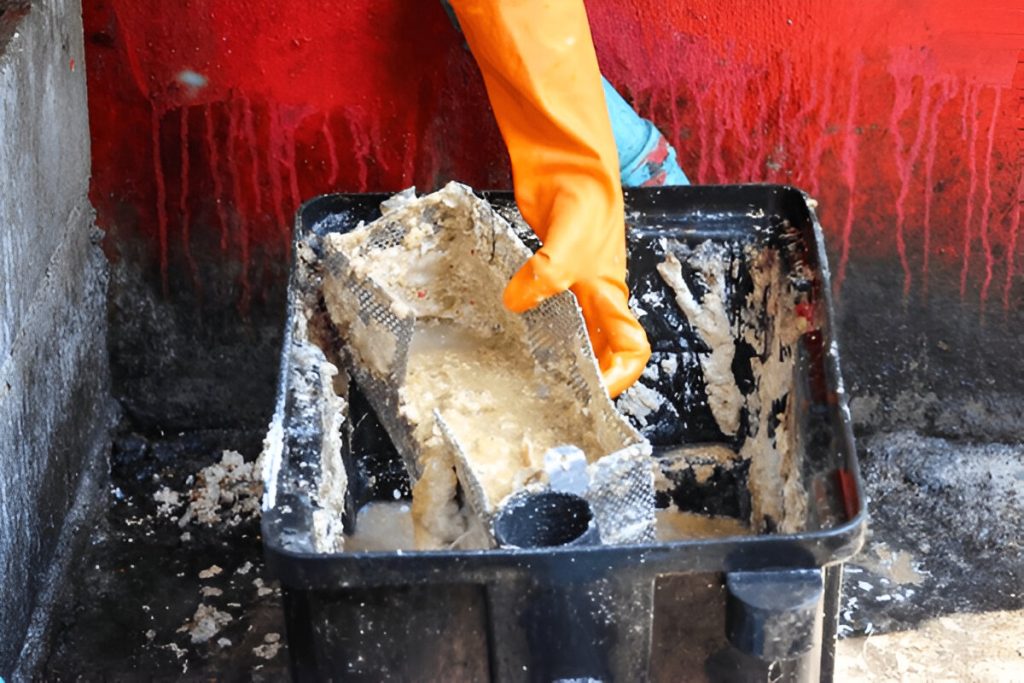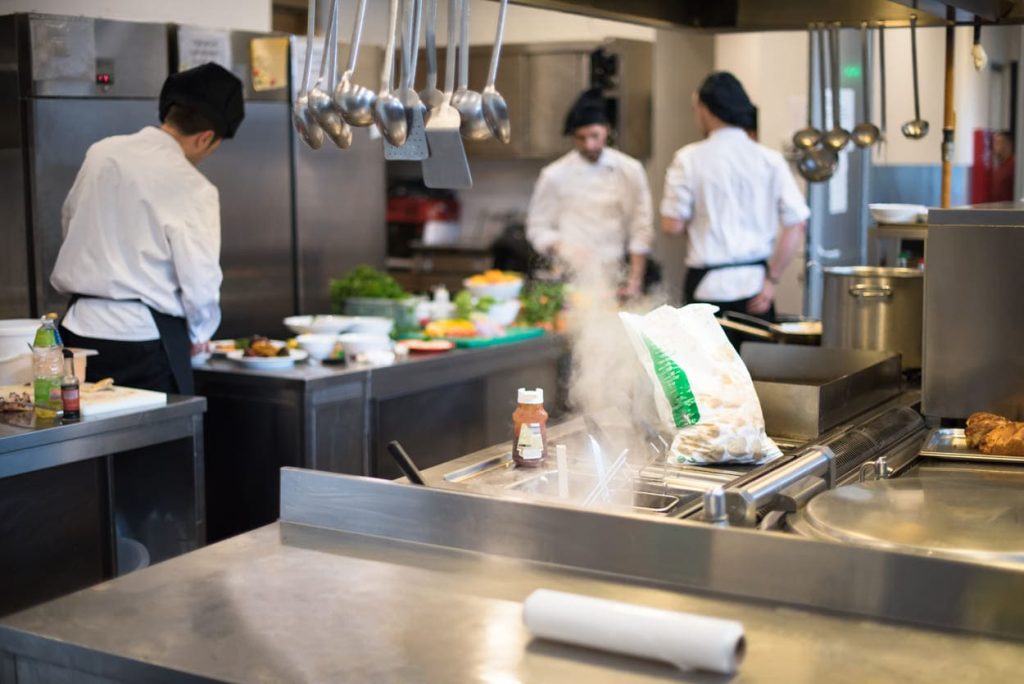Chicago Hood Cleaning
Grease Trap Cleaning in Elburn, IL
Rated 5 stars on Google

Avoid These Grease Trap Problems in Your Business
Grease traps can cause big problems when they aren’t cleaned regularly. Here are six common issues that we help business owners fix—before they turn into major headaches.
Bad Smells in the Kitchen
Old grease smells awful. Nasty smells can be caused by your grease trap, and they need to be cleaned.
Clogged Drains
When a grease trap is too full, it can block your pipes. If your sinks are backing up, it’s time to clean your grease trap.
Health Department Issues
Grease trap problems can lead to health code violations. A full grease trap can cause costly fines from health inspectors.
Grease Spills into Your Kitchen
Grease trap overflows create a big mess in your kitchen. It’s not just dirty—it’s a safety hazard.
Costly Plumbing Issues
Grease buildup leads to clogs in your main line. Ignoring your grease trap cleaning now could cost you big on repairs later.
Unhappy Staff or Customers
An unclean grease trap can lead to a frustrating, unhealthy environment for everyone. With regular cleaning, your kitchen stays a more comfortable place for employees and customers alike.
Why Choose Us for Vent Hood Cleaning in Elburn

Experienced Professionals
We’ve been in the business for years, offering expert grease trap cleaning services. Our team is highly trained to handle grease buildup and prevent common kitchen issues, ensuring your kitchen stays clean and operational.

Health Code
Compliant
We ensure your grease traps are up to code. Regular cleaning prevents violations and fines, so you can avoid costly problems and keep your kitchen in top shape for health inspections.

Prompt and Reliable Service
We understand the importance of keeping your kitchen running smoothly. That's why we offer fast, reliable grease trap cleaning services that won’t disrupt your business. We'll work around your schedule to minimize downtime.

Grease Trap Cleaning Solutions for Your Elburn Kitchen
You know that your kitchen is the heart of your business. A hidden kitchen problem is your grease trap. It may seem small, but a dirty or clogged grease trap can cause big problems.
What is Grease Trap Cleaning?
Grease trap cleaning involves removing the buildup of grease and food waste from your kitchen’s grease trap. This is an essential maintenance task that keeps your kitchen running efficiently, prevents odors, and ensures that your kitchen is safe and up to code.
Why Grease Trap Cleaning is So Powerful
When you don’t clean your grease trap, it can create bigger problems. Regular cleaning helps avoid costly repairs and ensures your kitchen meets health and safety standards.
Grease Trap Cleaning Can Help Solve These Issues in Elburn
When you don’t clean your grease trap, it can lead to several problems:
Unpleasant Odors – Grease trap buildup leads to bad smells that fill your kitchen.
Clogged Drains – A clogged grease trap can cause your drains to slow down or back up.
Potential Violations – Health codes require a clean grease trap. Dirty grease traps can cause fines or a failed health inspection.
Grease Overflow – Overflowing grease traps create dangerous messes. It’s messy, difficult to fix, and puts your kitchen at risk.
Plumbing Problems – Grease buildup leads to clogs in your main line. If grease keeps building up, it can lead to expensive plumbing repairs and even shut down your kitchen temporarily.
Frustrated Employees and Customers – Dirty grease traps can create an uncomfortable working or dining experience. A clean grease trap improves kitchen safety and the overall work atmosphere.
The Solution is Simple
Our professional grease trap cleaning service in Elburn helps you avoid these issues and keep your kitchen in top condition. We take care of your grease trap so you can focus on your business. Contact us for hassle-free, professional grease trap cleaning!

We Proudly Serve in Elburn
Located in Kane County, Illinois, Elburn is a charming village with a rich history dating back to the mid-19th century. Originally settled in 1834, Elburn was officially incorporated in 1886 as a thriving railroad community.
Today, Elburn boasts a friendly small-town atmosphere with a strong sense of community. With its top-rated schools, beautiful parks, and convenient access to shopping and dining, Elburn is a great place to live and raise a family. Residents enjoy a high quality of life while still being close to the amenities of neighboring cities.
One of the highlights of Elburn is its annual “Elburn Days” festival, a fun-filled event that celebrates the community’s heritage with live music, carnival rides, and delicious food. The village also offers a variety of recreational activities, including hiking and biking trails, sports fields, and community events.
As a grease trap cleaning contractor serving the residents and businesses of Elburn, we are grateful for the support and trust of our customers over the years. We look forward to continuing to provide top-notch service to the wonderful community of Elburn for years to come. Thank you for your business!
Frequently Asked Questions
Grease trap cleaning is the process of removing built-up grease, food particles, and waste from your grease trap. This helps keep your kitchen’s plumbing system running smoothly, prevents bad odors, and ensures that your business is up to code.
The frequency of cleaning depends on the size of your kitchen and how much grease is used. Generally, it’s recommended to clean your grease trap every 1-3 months. Regular cleaning prevents overflow and keeps your kitchen running efficiently.
Regular grease trap cleaning prevents costly plumbing problems, bad odors, and health code violations. It also helps your kitchen stay sanitary and safe for both employees and customers. A clean grease trap ensures your business operates smoothly.
Neglecting grease trap cleaning can lead to foul odors, slow or clogged drains, plumbing backups, and even health code violations. It can also create an unhygienic environment, affecting both staff and customers.
The cleaning process typically takes 1-2 hours, depending on the size and condition of the grease trap. We work efficiently to minimize downtime for your kitchen and ensure everything is cleaned properly.
The cost of cleaning your grease trap varies based on the size and condition of the trap. However, regular cleaning is more affordable than dealing with plumbing repairs, health code violations, or a broken-down kitchen.
While it’s possible to clean your grease trap yourself, it’s best left to professionals. Our team has the experience and equipment to safely and thoroughly clean your grease trap, ensuring it’s done right and meets all local codes.
